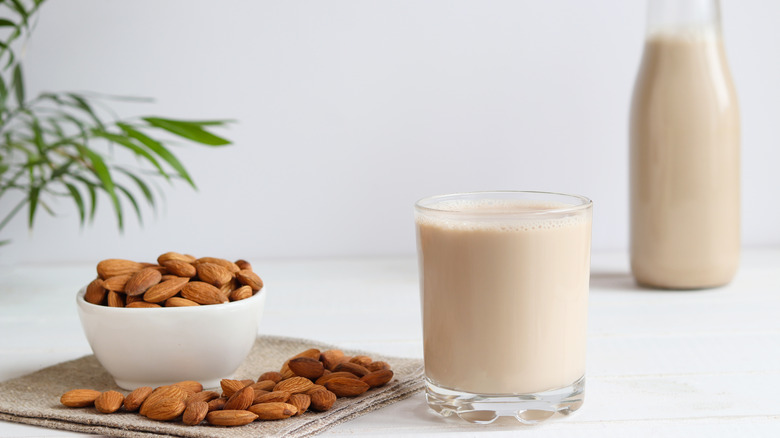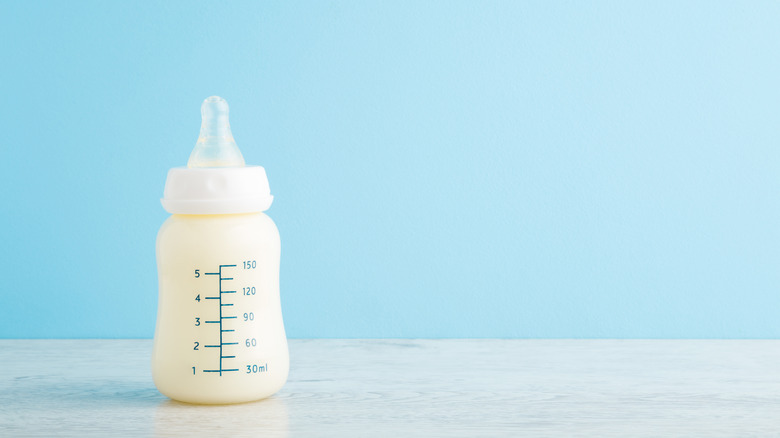Absolutely Do Not Put Your Baby On The Almond Milk Diet
These days, it's not at all uncommon for people to choose plant-based milks over regular dairy. Almond milk, as one of the most popular plant-based milks, has many health benefits, including being rich in calcium and vitamin E. Furthermore, as Medical News Today points out, almond milk is naturally low in calories, carbs, and sugar, which can be helpful if you're looking to stick to a certain diet.
However, as great as drinking almond milk may be for adults, it's entirely inappropriate for young children, especially babies. According to an article published by the American Academy of Pediatrics, an 11-month-old baby developed scurvy in 2016 after being fed only almond milk. The baby wasn't taking in enough nutrients — vitamin C in particular — and as a result, suffered from low bone density, fractures, and a "failure to thrive."
Unfortunately, incidents much like this one continue still to this day, with another case actually causing a baby to go into ketoacidosis. Without timely treatment by medical professionals, this condition would have proved fatal. But why is almond milk so dangerous for babies?
Almond milk is nutritious, but not nutritious enough for babies
Although we usually hear about ketoacidosis in connection with diabetes, you don't have to be diabetic to suffer from it. Ketoacidosis, per the CDC, is when your blood sugar is so low that your body starts to break down fats for energy instead.
Almond milk lacks the nutritional content babies need, and, as Insider explains, the aforementioned baby rushed to the hospital with ketoacidosis was actually suffering from starvation. Almond milk simply does not contain enough protein to sustain a baby, let alone help a baby grow, strengthen their immune system, or reach other mental and physical milestones.
The American Academy of Pediatrics (AAP) further expanded on this point on Twitter, explaining that even if an almond milk's label seems to have all the same things as regular dairy, "the chemical forms of the nutrition may not be easily absorbed by the baby's body." With this Tweet going out amid the 2022 formula recall and shortage, the AAP added that caregivers should never dilute formula, and should instead seek advice from a pediatrician regarding "safe alternatives."

